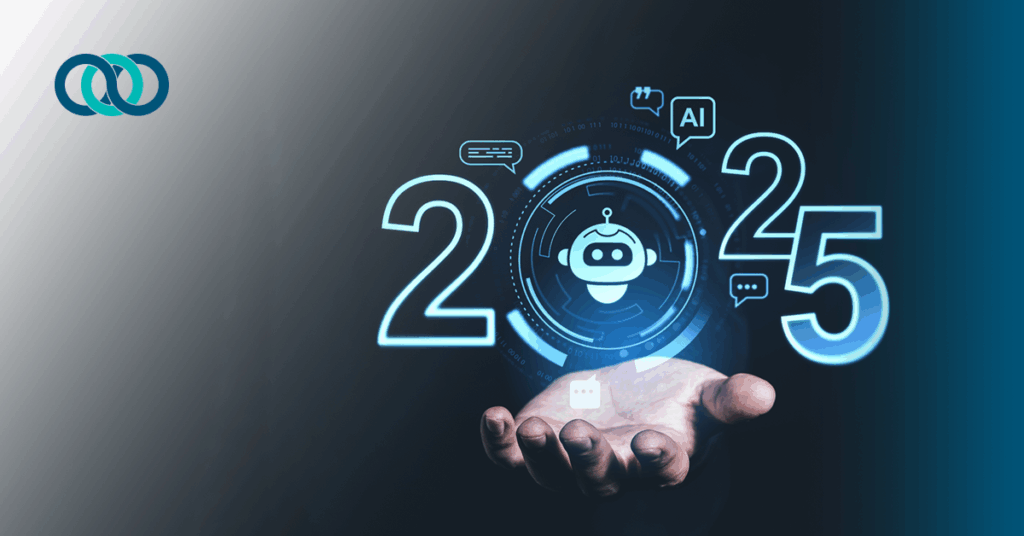In 2025, customer service trends will focus on AI-powered automation, hyper-personalization, omnichannel experiences, and human-AI collaboration to enhance efficiency and customer satisfaction. These innovations will streamline customer interactions and create more engaging and meaningful relationships between businesses and their customers.
Here’s a more detailed look at the top customer service trends expected for 2025:
1. AI-Driven Automation & Chatbots
- Increased Adoption: AI-powered chatbots and virtual assistants will become even more prevalent, handling routine inquiries and freeing up human agents for complex issues. As chatbot technology advances, these virtual assistants will become more conversational and capable of resolving queries efficiently.
- Predictive Analytics: AI will be used to anticipate customer needs and proactively offer solutions, improving the customer experience. For example, AI-powered chatbots may suggest troubleshooting steps before a customer even realizes an issue exists.
- Seamless Integration: AI will be seamlessly integrated into various customer service channels, including websites, mobile apps, and social media, ensuring a uniform and consistent customer experience.
- 24/7 Availability: Businesses will leverage AI chatbots to provide round-the-clock customer support, reducing wait times and improving accessibility.
2. Hyper-Personalization
- Data-Driven Insights: Businesses will leverage data analytics to understand customer preferences and tailor interactions accordingly. Machine learning algorithms will analyze past interactions to predict future customer needs.
- Personalized Recommendations: AI will enable personalized product recommendations and offers, enhancing the customer experience and driving sales. Customers will receive promotions and suggestions that align with their purchasing habits and browsing history.
- Contextualized Interactions: Customer interactions will be more relevant and engaging, taking into account the customer’s history, preferences, and current situation, leading to higher engagement and satisfaction rates.
- Voice and Biometric Recognition: Advancements in AI will enable personalized experiences through voice and biometric recognition, allowing seamless and secure authentication.
3. Omnichannel Customer Experience
- Seamless Transitions: Customers will expect a consistent experience across all channels, whether interacting with a brand online, in-store, or via phone. A conversation started on social media should be able to continue seamlessly on email or a phone call.
- Unified Platforms: Businesses will need to implement unified platforms that integrate all customer service channels, ensuring a cohesive experience. A centralized database will allow customer service representatives to access a customer’s entire history, improving support quality.
- Personalized Journeys: Omnichannel strategies will focus on creating personalized customer journeys that cater to individual needs and preferences. Automated workflows will guide customers through support processes based on their previous interactions.
- Enhanced Self-Service Options: Companies will offer AI-powered self-service tools, such as knowledge bases and interactive FAQs, to empower customers to resolve issues on their own.
4. Human-AI Collaboration
- Empowered Agents: AI will empower customer service agents by providing them with real-time information and insights, allowing them to resolve issues more efficiently. AI-driven suggestions and response recommendations will speed up issue resolution.
- Focus on Empathy: Human agents will focus on building relationships and providing emotional support, while AI handles the technical aspects of customer service. This will create a balanced approach where customers receive both efficiency and empathy.
- New Roles: The rise of AI will create new roles in customer service, such as AI specialists, customer experience architects, and chatbot trainers who refine AI interactions to ensure accuracy and effectiveness.
- Enhanced Training Programs: AI-driven simulations will help train human agents, allowing them to practice interactions in a virtual environment before engaging with real customers.
5. Proactive Customer Support
- Predictive Support: AI will enable businesses to identify potential issues before they arise and proactively offer solutions. This will reduce customer frustration and increase brand loyalty.
- Real-Time Monitoring: Customer service teams will monitor customer interactions in real-time, identifying opportunities to intervene and improve the customer experience before a problem escalates.
- Personalized Alerts: Customers will receive personalized alerts and updates, keeping them informed about their orders, issues, and other relevant information, such as estimated delivery times and potential service disruptions.
- Automated Follow-Ups: AI will automatically send follow-up messages to customers, ensuring that their issues have been fully resolved and providing additional support if needed.
6. Data Security and Privacy
- Customer Trust: Businesses will need to prioritize data security and privacy to build customer trust and ensure compliance with regulations like GDPR and CCPA.
- Data Transparency: Customers will expect businesses to be transparent about how their data is collected, used, and protected. Companies will need to provide clear and accessible privacy policies.
- Ethical AI: AI systems must be designed and used ethically, ensuring fairness and avoiding bias. Organizations will implement strict ethical guidelines to ensure AI-driven decisions do not discriminate against any customer group.
- Decentralized Identity Management: Blockchain-based security measures will become more common to provide customers with greater control over their personal data and how it is shared.
7. Customer Feedback and Engagement
- Voice of the Customer: Businesses will actively solicit and analyze customer feedback to identify areas for improvement and drive innovation. AI-driven sentiment analysis will allow businesses to gauge customer satisfaction in real time.
- Community Building: Creating online communities and forums will allow businesses to engage with customers and build relationships. Companies will invest in brand-driven social platforms where customers can share experiences and seek advice.
- Customer Loyalty Programs: Loyalty programs will become increasingly personalized and rewarding, encouraging repeat business and building customer loyalty. AI will tailor rewards and incentives to individual customers based on their behavior and preferences.
- Gamification Strategies: Businesses will introduce gamified experiences, such as interactive surveys and challenges, to increase customer engagement and collect valuable feedback.
Conclusion
AI-driven efficiency, deep personalization, seamless omnichannel experiences, and a strong emphasis on customer trust and ethical practices will characterize customer service in 2025. Companies that invest in these trends will be better positioned to meet customer expectations, build long-term relationships, and stay ahead in a highly competitive marketplace. By combining technological advancements with human empathy, businesses will create more engaging and satisfying customer experiences that drive loyalty and growth
Ready to take Avaya classes with TrainingPros?
TrainingPros is an award-winning training provider offering training on Avaya products and services for over twenty years. We employ highly skilled, versatile, expert trainers who are true professionals and experts on Avaya products and solutions.
We strive for excellence, and feedback from our students and instructors is key to our growth and success. Learner engagement and satisfaction are the most critical measures of the effectiveness of virtual training. TrainingPros surveys all our participants and evaluates feedback to drive continuous improvement in our training offerings. Our results on client satisfaction speak for themselves, with a 4.6 out of 5 customer satisfaction score. We employ many of the above virtual training best practices to bring our learners the best training experience possible. Visit us to enroll in an Avaya training class or contact us to schedule a custom class for your company today. Contact us at Avaya.Training@Trainingpros.com
- 0share
- LinkedIn0
- Twitter0
- Facebook0
- Love This0












